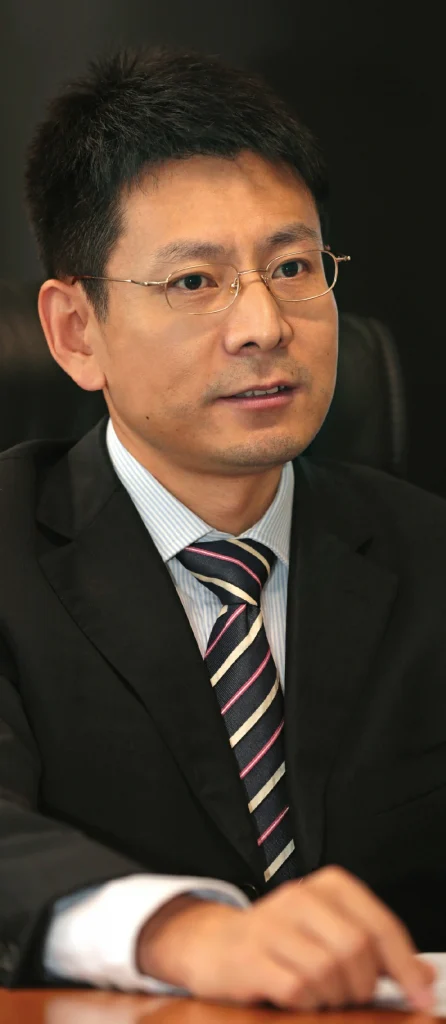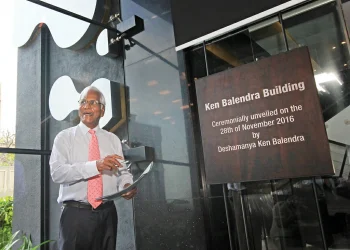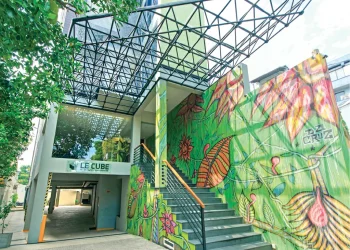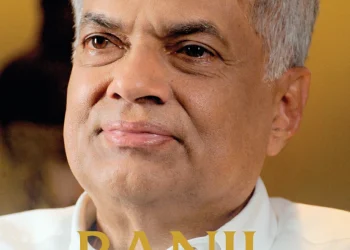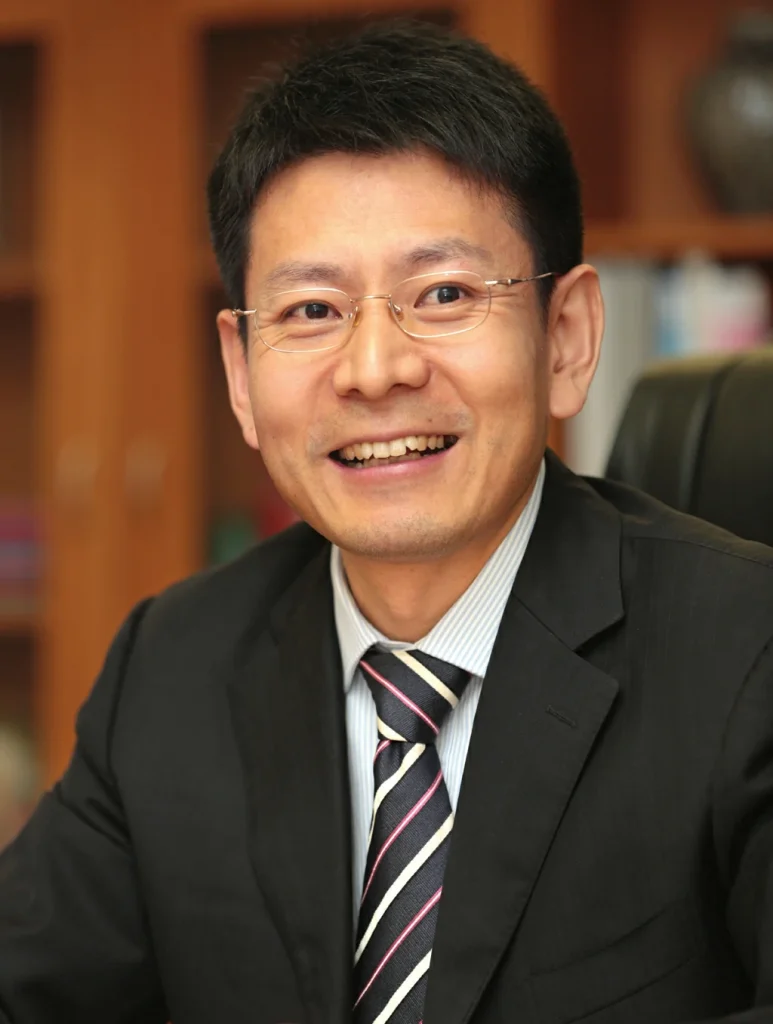
Huawei is a leading global information and communications technology (ICT) solutions provider and is the key partner in the telecommunications sector in Sri Lanka. Their aim is to enrich life and improve efficiency through a better connected world, acting as a responsible corporate citizen, innovative enabler for the information society, and collaborative contributor to the industry. Driven by customer-centric innovation and open partnerships, Huawei has established an end-to-end ICT solutions portfolio that gives customers competitive advantages in telecom and enterprise networks, devices and cloud computing. Shunli Wang, Chief Executive Officer, Huawei Technologies Lanka speaks about the company’s journey in Sri Lanka over the past decade and also the global vision that guides its future endeavours.
By Udeshi Amarasinghe | Photography Mahesh Bandara and Menaka Aravinda
Huawei entered the Sri Lankan market in 2005. Can you elaborate the journey of Huawei since then?
As a global leading ICT solutions provider, we entered the Sri Lankan market in the year 2005. In the last ten years our business has grown globally as well as in Sri Lanka. We are partnered with operators such as Dialog, SLT and Mobitel. We introduced the first 4G network in Sri Lanka together with Dialog in 2013. We have introduced the first 4.5G network in South Asia with local operators, which will enable us to achieve the target of 1Gpbs download speed so that the people in Sri Lanka can enjoy more fast speed internet.
In the past ten years as a global ICT solutions provider Huawei has achieved much. First of all, Huawei was ranked at number 129 in the Fortune Global 500 companies list in 2016. Then, Huawei was selected as Interbrand Top 100 Best Global Brands. I am very proud of our performance in the past ten years. To give one example, our global sales revenue is 60.8 billion US dollars in 2015.
Huawei was founded in 1987 and within 30 years Huawei became the number one ICT solutions provider in the world. We can attribute this to our major focus on customer-centric innovation. Each year, we invest more than ten per cent of our sales revenue in research and development. If you look at 2015 alone, we have invested over nine billion US dollars on research and development. 5G is the way forward in ICT, Huawei has invested 600 million US dollars on 5G.
Huawei Is A Private Company Fully Owned By Its Employees…What Is Unique Is Mr Ren Zhengfei, Founder And President Of Huawei Owns Only 1.4 Per Cent Of The Company Shares. The Remaining Shares Have Been Given To About 80,000 Of The 170,000 Global Employees.
Huawei is a private company fully owned by its employees and not a public listed company. Its Employee Stock Ownership Plan (ESOP) is the most disruptive innovation Huawei has ever made. What is unique is Mr Ren Zhengfei, Founder and President of Huawei owns only 1.4 per cent of the company shares. The remaining shares have been given to about 80,000 of the 170,000 global employees. This is something very unique and has enabled the employee to feel ownership for their company. ESOP effectively aligns employee contributions with the company’s long-term development, allowing employees to remain dedicated over the long term and share in Huawei’s success.
Huawei is a main ICT infrastructure partner in Sri Lanka. Can you elaborate on this?
I would like to elaborate this in two ways. One is Huawei’s dedication to innovation, as I mentioned every year ten per cent of our global sales revenue is used for research and development. In Sri Lanka, we are using the same approach and we are working with all telecom operators such as Dialog, SLT, and Mobitel in terms of providing the latest technologies and better services.
Sri Lanka is not a very big market, therefore after sales service is most important. Our principle is that we cannot just do business of selling products here. However, with our solutions and services, the customer wins, that is our target. Why do we say that? If the customer wins then Huawei wins.
The second aspect is, no matter which country Huawei works in, we will always be a reliable corporate citizen. In Sri Lanka we make donations to support education. Even during the floods in 2016 Huawei supported and facilitated to help communities to reach safety and also provided them with relief. Hon Ranil Wickremesinghe, Prime Minister of Sri Lanka visited Huawei Headquarters in China and witnessed the signing of MOU on ICT cooperation between the Sri Lankan Government and Huawei in August, 2016. The MOU demonstrates the Sri Lankan Government’s commitment to furthering its cooperation with Huawei. The Government of Sri Lanka recognises Huawei as a global leading ICT solution provider, and invites Huawei to provide suggestions to Sri Lanka’s ICT development plan.
A 20 Per Cent Increase In ICT Investment Can Accelerate GDP Growth By One Per Cent.. Take China For Example, Their GDP Growth Is Driven By ICT Development.
Since the visit of Hon Prime Minister to China we have already started working on our promises together with the Ministry of Telecommunication and Digital Infrastructure, especially Hon Minister Harin Fernando who has been very supportive. We are working together on national broadband forum and Seeds For the Future program, which help the entire industrial sector of this country. We are looking at the current situation in ICT development, the trends that we need to follow or look for the future in terms of technology and solutions, which can bring value to the whole country. We will be launching the Customer Solutions Innovation & Integration Centre in February 2017. If you look at our position in the ICT industry in Sri Lanka, we are making a major contribution to this country.
You mentioned previously that the Sri Lankan market is very small. In that sense why did Huawei decide to entire Sri Lanka?
Yes, I admit that Sri Lanka with a population of around 22 million is not a very big market. Huawei’s vision is to enrich people’s lives through communications. Therefore, we enter a market not only to do business but also contribute something of value to the country, which is important. We want to have a footprint in this beautiful island. I remember in year 2005 at the time that Huawei entered the Sri Lankan market for the first time, the mobile penetration rate was only 16.8 per cent. The fixed network penetration was around 0.4 per cent. But if you look at recent figures from ITU, the mobile penetration rate in this market is 112 per cent in 2015. Similarly, the family broadband penetration rate has increased to 12 per cent in 2015. This is a big achievement where telecommunication has already enriched people’s lives. We are very proud that we are part of this achievement.
What are your thoughts on the telecom sector in Sri Lanka and what more can be done?
When we talk about the telecommunication industry, we should also look at the history and the other areas of development in the country. According to a statistic report on the value of the ICT industry to the economy, A 20 per cent increase in ICT investment can accelerate GDP growth by one per cent. The World Bank found that every dollar invested in ICT infrastructure in developed countries generates 1.4 US dollars of value added.
Take China for example, their GDP growth is driven by ICT development. I believe it will be the same in Sri Lanka as well. While Sri Lanka’s ICT infrastructure is not as good as developed countries, the potential with the introduction of 4G and 4.5G is immense and there is great brand value for Huawei. Much of the current ICT infrastructure has been built by Huawei. This network is already serving 70 per cent of the population in this country. It is a great achievement.
I must say that in terms of the achievement in mobile and fixed line penetration, all of this is done not by one person or by one organisation. At the Business Today TOP 30 event, the CEO of Dialog Dr Hans Wijayasuriya said that all of this achievement should be attributed to the whole industry including Dialog’s 3,000 employees. I would also like to say the same thing. This achievement was done by the Sri Lankan people and of course the entire industry, including the Government’s efforts.
I Am Very Happy With The Support From The Government. We Can See Great Initiatives From Hon Prime Minister. There Are Discussions On How To Develop The Talent Of The People, Attract Capital To The Country And Also Develop Further In Terms Of Technology And Economic Growth.
I am very happy with the support from the Government. We can see great initiatives from Hon Prime Minister who is looking at working with stakeholders in Sri Lanka as well as outside. There are discussions on how to develop the talent of the people, attract capital to the country and also develop further in terms of technology and economic growth. His leadership and policies to drive the whole industrial development in this country are very good. Hon Minister Harin Fernando and his Ministry are being very active as well.
The Minister has also visited many of the global ICT companies and solution providers to find the more suitable or efficient way to move forward. As a global company we are very happy with this type of interests.
The telecom operators in Sri Lanka, such as Dialog, SLT, Mobitel, Airtel, Etisalat and Hutch are doing their best. They are aiming to provide the best networks and experiences in voice and data to improve the lives of the people in Sri Lanka. Meanwhile all enterprises, irrespective of whether they are in the ICT sector or not are all trying to cater to the needs of society. That is a very good way forward. We also believe that everyone will have a smart device in future in the country.
How important is it for Sri Lanka to join with international partners such as Huawei?
In fact, we are very appreciative of the current situation, as it is more open for the development of the industrial sector. I am originally from China, therefore I remember if we look back 30 years ago the country was closed to the outside world. At that time it was not only the Government that was suffering but also the people because of very low efficiency and the poor lifestyle of the entire country. During the 1980s, the Leader Deng Xiaoping made the right decision and with his instructions China opened up to the global economy. This brought in advanced technologies and a new approach that enabled massive growth in China.
It Is The Best Time For The ICT Industry To Contribute To The Economic Growth Of The Country. There Is Good Governance And Policies In Place, Which Is An Immense Support From The Government.
Investment for the ICT industry cannot be for the private sector alone. It definitely needs public private partnerships (PPPs) where both the Government and private sector work together. In fact at the beginning the Government has to invest on national broadband, which will be a major driver that will bring investors into the market. From the Government side, they will need to provide infrastructure to rural areas where at times even power and electricity are not available. The people in these areas lack opportunities. If they have internet they can freely access and communicate with the world. Then they can immediately have the same business, training and education opportunities. Providing internet opportunities to everyone should be a basic right for the people. The Sri Lankan Government has also understood this concept. The public and private sectors have to work together for everyone in the society to benefit.
I believe that this process of opening the economy by the Sri Lankan Government will definitely bring a bright future for the country. I also feel that the Sri Lankan people are working very hard including the Huawei staff. We have more than 400 employees, which is more than 86 per cent of Sri Lankans working at Huawei. They are working very hard because they understand our concept and obligation to contribute to the country. Then they can earn from their work and support their families. Therefore, it is a great advantage for Sri Lanka to partner with global companies such as Huawei.
Huawei works closely with Sri Lankan communities; Seeds for the Future is one such programme. Can you elaborate on this?
This is one of our promises, when we signed the MOU not only this year but also for continuity in the future. We are doing our best to contribute our efforts to communities as a reliable corporate citizen. We fully sponsored ten students to China on an educational trip. We will also look at sending not only students but technical people for training. There is very good potential and this is a good opportunity for young talented people not only in the technical industries but other sectors as well. They are the future of the country, as such we focus on education and training of youth.
Plans for 2017?
Ten years ago, very few people knew about Huawei in Sri Lanka. But, today we are a major player in the ICT industry. We are the leading ICT solution provider in Sri Lanka at present. Even as recently as three years ago, not many people were aware of Huawei smart phones. We entered the smart phone market in 2013, but if you look now, we are already the number two supplier in terms of smart phones. We gradually received recognition in the market.
In 2017 we are looking at greater achievement especially in terms of providing ICT technologies and solutions. We are confident that we can serve more enterprises because every business no matter the size needs ICT infrastructure. We can provide better solutions and services by working with them. Since Huawei provides after sale services, we ensure the maintenance of the products and solutions that we provide. We entered the market ten years ago and we will continue to keep our promise to our customers to achieve their target to win this market. We will assist our customer through our solutions and services.
Can you tell us about yourself?
I would love to share my experiences. I have been with Huawei in the ICT industry for 20 years, which is since 1997. I worked as an engineer in research and development for eight years. I have worked for 11 years in emerging markets especially in South and Eastern Africa. Therefore, I know how emerging markets behave and how Huawei can help people achieve their targets especially in the IT industry. I joined the Sri Lanka team in November 2015. I am already comfortable working here. We are continuously communicating with stakeholders on our efforts to serve the customer in a better way and we aim to achieve much more in the future.
Message to the readers?
It is the best time for the ICT industry to contribute to the economic growth of the country. There is good governance and policies in place, which is an immense support from the Government. This will certainly ensure greater growth in the industry and the entire country. We are very confident.
When I first arrived in Sri Lanka, I could feel in the air the anticipation similar to that of the 1980s when China opened its doors to the world, this is a very good sign. I felt so excited and realised that it was the right time to come here. In this current environment, the future is bright for everyone and there is huge potential for growth for not only the government, telecom operators and industry but all stakeholders of the country.
We have been in Sri Lanka for over a decade. We will continue to be a reliable partner of the country focusing on a better connected Sri Lanka and adding more value to local communities and industry.

